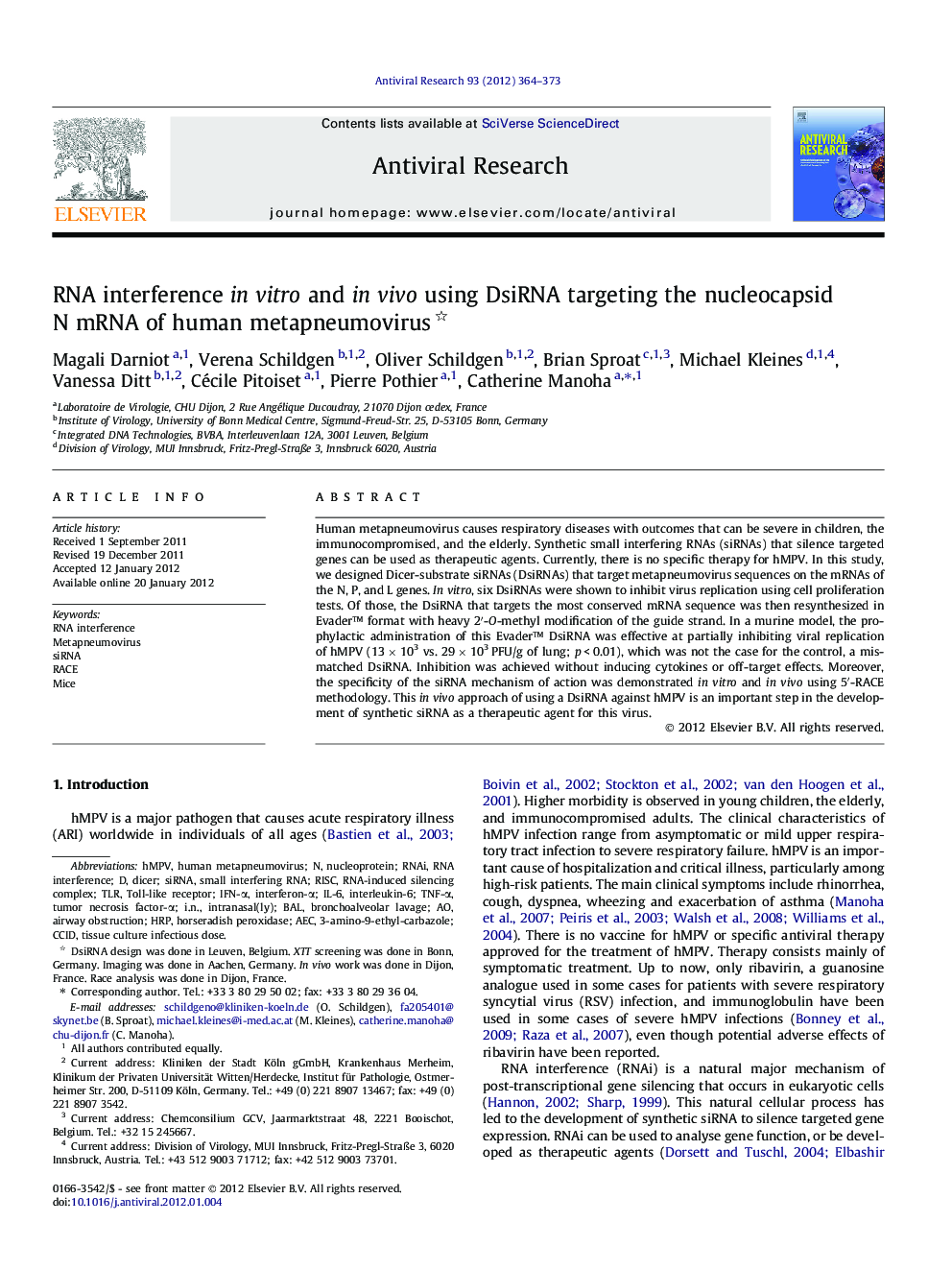| Article ID | Journal | Published Year | Pages | File Type |
|---|---|---|---|---|
| 2510044 | Antiviral Research | 2012 | 10 Pages |
Human metapneumovirus causes respiratory diseases with outcomes that can be severe in children, the immunocompromised, and the elderly. Synthetic small interfering RNAs (siRNAs) that silence targeted genes can be used as therapeutic agents. Currently, there is no specific therapy for hMPV. In this study, we designed Dicer-substrate siRNAs (DsiRNAs) that target metapneumovirus sequences on the mRNAs of the N, P, and L genes. In vitro, six DsiRNAs were shown to inhibit virus replication using cell proliferation tests. Of those, the DsiRNA that targets the most conserved mRNA sequence was then resynthesized in Evader™ format with heavy 2′-O-methyl modification of the guide strand. In a murine model, the prophylactic administration of this Evader™ DsiRNA was effective at partially inhibiting viral replication of hMPV (13 × 103 vs. 29 × 103 PFU/g of lung; p < 0.01), which was not the case for the control, a mismatched DsiRNA. Inhibition was achieved without inducing cytokines or off-target effects. Moreover, the specificity of the siRNA mechanism of action was demonstrated in vitro and in vivo using 5′-RACE methodology. This in vivo approach of using a DsiRNA against hMPV is an important step in the development of synthetic siRNA as a therapeutic agent for this virus.
► First RNA silencing against metapneumovirus in an animal model (mouse). ► DsiRNA reduced in vivo viral replication. ► DsiRNA did not stimulate host immunity. ► Distribution of the DsiRNA evaluated by whole-animal imaging. ► Predicted cleavage of the mRNA confirmed by RACE analysis.
